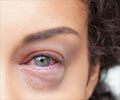Researchers say they are unable to determine whether vision tests actually lead to fewer fatal crashes
Recent automobile accidents with tragic results have prompted questions about the eyesight of elderly drivers, but researchers say they are unable to determine whether vision tests actually lead to fewer fatal crashes.
“We have this hypothesis that [as years pass] you have more age-related eye conditions,” said lead reviewer Sayed Subzwari. By this line of reasoning, elderly drivers are theoretically more accident-prone. However, the review found little evidence to make that case.The new review appears in the latest issue of The Cochrane Library, a publication of The Cochrane Collaboration, an international organization that evaluates medical research. Systematic reviews like this one draw evidence-based conclusions about medical practice after considering both the content and quality of existing medical trials on a topic.
Subzwari, a family physician and researcher, led a team from the British Columbia Injury Research and Prevention Unit, Centre for Community Health Research in Vancouver, Canada. They screened more than 4,500 published and unpublished studies. However, none met the rigorous criteria that the researchers had set for review inclusion.
“Three relevant studies were identified, but they did not meet the predefined study design criteria,” Subzwari said.
Outside data suggest that advanced age does not necessarily translate into poor driving skills. In December, the Insurance Institute for Highway Safety reported that fewer older drivers died or were involved in fatal collisions from 1997 to 2006 than in past years.
Yet doctors, health advocates and family members routinely debate how long elderly drivers should stay on the road. A fast-growing proportion of the population is over 65. According to the U.S. Census Bureau, about 37 million Americans are currently in that age group.
Advertisement
Jurisdictions struggle to understand vision issues involving older drivers, said Anne McCartt, senior vice president for research at the Insurance Institute for Highway Safety. “The problem with older drivers is that yes, there are age-related impairments that, on average, we experience when we get older, but there are a lot of differences [among elderly drivers] too.”
Advertisement
Older drivers who want to stay behind the wheel can point to some statistics in their favor: A 2008 Insurance Institute report revealed that crash deaths among drivers 70 and older fell 21 percent from 1997 to 2006, even as the population in that age group rose 10 percent. Compared to drivers ages 35 to 54, the Institute found that older drivers experienced larger declines in fatal crash involvements.
“We’re not sure why older drivers are doing better,” McCartt said. However, she added that older drivers are less likely to be in alcohol-related crashes. “They don’t talk on the phone to the same extent [as younger drivers].” Few elderly drivers steer while sending text messages, she said. “My parents don’t know what text messaging is.”
Compared to drivers between the ages of 20 and 69, fewer people 70 and older have a license to drive. They drive fewer miles per licensed driver, according to the Insurance Institute. Researchers point out that older drivers have a lower crash rate because they simply do not get behind the wheel as often.
In addition, some states allow mail-in license renewals. When required to come into the motor vehicle department to take an eye exam, some elderly drivers opt out in fear of failing.
“They self-regulate,” said Ediriweera Desapriya, a researcher with the BC Injury Research and Prevention Unit. Many of the elderly are selective about their trips, driving only when required. “They go to the doctor’s appointment and come back home.”
Still, considering the growing proportion of elderly drivers, the Canadian researchers propose a study using randomized selection to assess whether vision screening can effectively result in fewer crashes.
Source-Newswise
SRM









